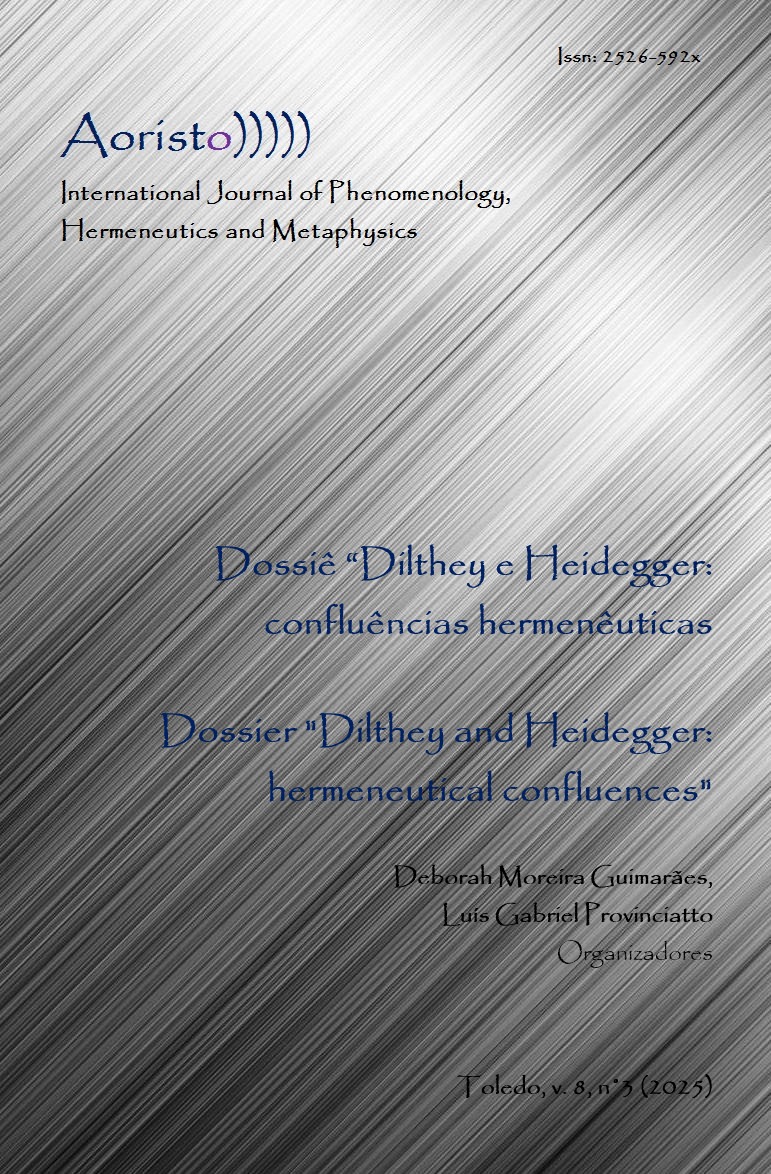Dilthey e a crítica da razão histórica
a hermenêutica como método para as ciências humanas
DOI:
https://doi.org/10.48075/aoristo.v8i3.36334Palabras clave:
Hermenêutica, ciências humanas, método, historicidadeResumen
O presente trabalho pretende apresentar a hermenêutica elaborada por Wilhelm Dilthey. Discutiremos sua proposta de uma crítica da razão histórica, a partir do projeto de fundamentação e elaboração de um método para as ciências humanas. Para isso, reconstruímos a distinção entre as noções de explicação e compreensão e sua aplicabilidade aos fenômenos das ciências naturais e humanas respectivamente. Mostraremos ainda como, para o autor, os fenômenos próprios das ciências humanas são marcados pela historicidade e como, para compreendê-los, necessitamos reconstruir a conexão entre os fenômenos a partir do nexo vital do espírito objetivo de uma época.
Descargas
Publicado
Cómo citar
Número
Sección
Licencia

Esta obra está bajo una licencia internacional Creative Commons Atribución-NoComercial-SinDerivadas 4.0.
Copyright Notice
1. I grant the AORISTO – International Journal of Phenomenology, Hermeneutics and Metaphysics the first publication of my article, licensed under Creative Commons Attribution (which allows sharing of work, recognition of authorship and initial publication in this journal).
2. I confirm that my article is not being submitted to another publication and has not been published in its entirely on another journal. I take full responsibility for its originality and I will also claim responsibility for charges from claims by third parties concerning the authorship of the article.
3. I also agree that the manuscript will be submitted according to the Aoristo’s publication rules described above.
License Creative Commons
This work is licensed under a Creative Commons Atribuição-NãoComercial-CompartilhaIgual 4.0 Internacional, which allows you to share, copy, distribute, display, reproduce, in whole or in part, for as long as there is no commercial purpose, and authors and source are cited.


